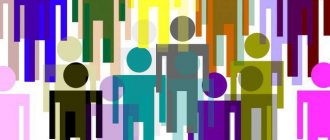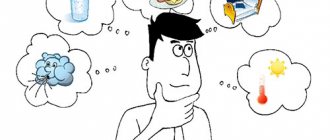Ways to satisfy modern man
The definition of social needs has changed as the world has evolved. In current conditions, people are increasingly excluded from society. The Internet, social networks, gadgets - all this leads to the fact that individuals have little face-to-face contact.
Important! It is impossible to clearly name effective ways to satisfy needs, since they are different for each person. There are general recommendations that will allow you to realize a social need
The individual organizes his own activities, so he must communicate, make contact, meet other people and take initiative
There are general recommendations that will allow you to realize a social need. The individual organizes his own activities, so he must communicate, make contact, meet other people and take initiative.
The ability to conduct conversations does not appear with the birth of a person. Social skills are trained through practice. You need to constantly communicate and get to know each other.
Another way is to learn new things. Meetings, seminars, training courses - all this allows you not only to gain knowledge, but also to acquire new social connections.
A person must understand who he is. To do this, he needs to devote time to reflection. Such self-analysis allows you to get an idea of your pros and cons. Self-esteem appears only in self-confident people.
Hierarchy
The diversity of human nature is the reason for the existence of various classifications of needs: by object and subject, areas of activity, temporary stability, significance, functional role, etc. The most widely known is the hierarchy of needs proposed by the American psychologist Abraham Maslow.
- The first stage is physiological needs (thirst, hunger, sleep, sexual desire, etc.).
- The second stage is security (lack of fear for one’s existence, confidence).
- The third stage is social needs (communication, friendship, love, caring for others, belonging to a social group, joint activities).
- The fourth stage is the need for respect from others and oneself (success, recognition).
- The fifth stage is spiritual needs (self-expression, revealing inner potential, achieving harmony, personal development).
Maslow argues that satisfying needs at the lower levels of the hierarchy leads to strengthening of higher ones.
A thirsty person concentrates his attention on finding a source of water, and the need for communication fades into the background
It is important to remember that needs can exist simultaneously, the issue is only a matter of priority
Social needs
Human social needs are not as acute as physiological ones, but they play a vital role in the interaction between the individual and society. The realization of social needs is impossible outside of society. Social needs include:
- need for friendship;
- approval;
- love;
- communication;
- joint activities;
- caring for others;
- belonging to a social group, etc.
At the dawn of human development, it was social needs that contributed to the development of civilization. People united for protection and hunting, fighting the elements. Their satisfaction in joint activities contributed to the development of agriculture. The realization of the need for communication pushed the development of culture.
Man is a social being and he gravitates toward communicating with his own kind, therefore satisfying social needs is no less important than physiological ones.
Significance
Satisfying social needs from the “for oneself” group is a necessary condition for the formation of a full-fledged personality.
Compliance of a person’s life with his social expectations guarantees the positive socialization of such a person in society and excludes the manifestation of any forms of deviant behavior.
A person who is satisfied with his level of development, education, career, friends and family life is a useful member of society.
Each of his satisfied needs leads to the emergence of some socially significant result: a strong family with children is a full-fledged unit of society, career achievements are the successful performance of work functions, etc.
Satisfying needs “for others” and “together with others” is the key to the positive functioning of society.
Only positive interaction between people, their ability to act together in the public interest, and not just individually for personal purposes, will help create a mature society.
The problem of modern society lies precisely in the reluctance of people to satisfy common needs. Each person approaches the issue from a selfish point of view - he does only what is beneficial for him.
At the same time, the lack of initiative in carrying out important social actions leads to disorder, violations of the law, and anarchy.
As a result, the integrity and well-being of the society in which a person lives is violated, and this immediately affects the quality of his own life.
That is, his selfish interests are affected in any case.
Implementation examples
Let me give you real life situations:
- Category "for yourself". From an early age, the child tries to comprehend the surrounding reality. From the moment he gains the ability to talk, he is interested in everything he sees, bombarding his parents with questions. With the ability to read, he begins to extract answers from books. The development process occurs without stopping: while watching TV, while walking, in kindergarten classes. The data is then retrieved when studying at school or university. In everyday life, when a person is faced with a question that interests him, he begins to look for an answer to it.
- Category “together with others”. Everyone has a desire to exist in a free and fair society, where the rules of morality and ethics and legislation are strictly observed. Communication is based on the principles of equality and mutual respect. The individual tries to behave decently, according to basic standards of behavior.
- Group "for others". Unfortunately, altruism is poorly manifested in modern life. This concept implies a complete or partial renunciation of one’s own “wants” in favor of others. But not everyone can sacrifice their interests. However, this need is being satisfied. This includes helping those in need, charity events, creating a shelter for animals and the homeless.
Significance
Satisfaction of needs is the key not only to the formation of a mature personality, but also to stability in general. The correspondence of desires with the education received, the profession, and the circle of loved ones creates useful members of society.
Ask a question
Any realized aspiration leads to a larger result: creating a strong and happy family, fulfilling work responsibilities and, as a result, a successful career.
Such people do not show signs of deviant behavior. When individuals do not have the initiative to take important social actions, disorder and anarchy reign. This deteriorates the quality of life of individuals, and also disrupts the usefulness of society.
Is it possible to manage your needs?
Needs must be satisfied, but they should not control the will of a person. In addition, not all needs are useful, reasonable, or truly necessary. There are so-called imaginary needs that a person does not need, but is not aware of it.
Example. Alina wanted to dye her hair green. Parents did not agree to such an experiment for a long time. Then the girl bought the dye herself and dyed her hair secretly from her family. When Alina came to school, boys and girls began to laugh at her, calling her a mermaid, a swamp monster. Alina expected a backlash; it seemed to her that green was a fashionable color, that she would become popular thanks to this change in image.
At best, imaginary needs do not bring any benefit; at worst, they harm health, life, and well-being.
This is interesting! According to statistics, the number of alcoholics in the world is increasing every year. Scientists have calculated that by 2050, every twentieth person on the planet will be an alcoholic. Addiction causes irreparable harm to health and psyche, but people cannot refuse the need imposed on them.
To learn how to manage your needs you need:
- Have a purpose in life. A purposeful person will not be distracted by nonsense and will prefer useful things to harmful ones;
- Enrich your inner world. A person with many interests, developed abilities, and talents pays less attention to satisfying material needs;
- Show will. When tempted to abuse something, think about the consequences.
(Source)
Thus, a person will become the master of his feelings and needs, he will manage them, and consciously make decisions.
Needs for love and belonging
This is the next level of Maslow's pyramid. The need for love is closely related to the individual’s desire to avoid loneliness and be accepted into human society. When the needs at the previous two levels are satisfied, motives of this kind occupy a dominant position.
Almost everything in our behavior is determined by the need for love.
It is important for any person to be included in relationships, be it family, work team or something else. The baby needs love, and no less than satisfaction of physical needs and security needs
The need for love is especially pronounced during the teenage period of human development. At this time, it is the motives that grow out of this need that become leading.
Psychologists often say that typical behavior patterns appear during adolescence. For example, the main activity of a teenager is communication with peers. Also typical is the search for an authoritative adult – a teacher and mentor. All teenagers subconsciously strive to be different - to stand out from the crowd. This gives rise to the desire to follow fashion trends or belong to a subculture.
What is a person's social needs?
One of the priority needs is internal sensations. For example, the desire for freedom and independent position. The individual wants to break out of the usual framework, if he has one.
Hedonism is another desire that everyone has. Everyone loves to periodically be in a state of serenity, both material, spiritual and physical. But many deny this “wish”, although it is present on a subconscious level. And that's okay. After all, if at the moment there is no way to achieve comfort, then it is easier to convince yourself that it is not necessary.
What else is included
Everyone at least sometimes wants to be the center of attention to feel important. And the point here is not selfishness, but self-respect, increasing authority in one’s own eyes.
No matter how contradictory it may seem, everyone needs negativity. Aggression is a characteristic inherent in everyone. The manifestation of feelings leads to self-satisfaction, a feeling of rightness.
But not everything is so bad, and the need for goodness is also included in the list. Everyone had a desire to help a loved one for free, to perform a selfless act. After this there is a sense of nobility and caring.
Material needs
Material needs play a major role in human life. This group includes all the needs necessary for a comfortable material existence:
- home;
- cloth;
- Appliances;
- furniture;
- means of transportation (personal or public transport);
- electronic devices;
- food.
(Source)
Everyone has their own idea of comfort; the level of material needs depends on a person’s financial situation and personality characteristics.
Example. For Nastya, two pairs of boots are enough for the winter; the main thing for her is that the shoes are comfortable. Maria is worried that her parents refused to buy her new boots because she has a lot of shoes and a new pair won’t fit in her closet.
The entire economy is built on satisfying material needs. Factories and factories produce even more products than a person can purchase. Therefore, wanting to artificially increase needs, manufacturers use a trick - advertising goods. Seeing a beautiful picture on the screen, a person, without meaning to, begins to think about this product and consider it valuable.
Material needs develop with the improvement of technology, so 100 years ago people could only dream of a wired telephone, today everyone has their own mobile phone.
(Source)
Types of needs
Needs can be classified on various grounds, of which there are quite a lot in the theory of psychology. The main types of division of needs are presented in the next section.
If we summarize all available theories, then we should distinguish three basic types of human needs.
Biological or physiological
Among the innate human needs laid down at the genetic level are the following:
- Food safety and taste characteristics.
- Comfortable external temperature and electromagnetic background.
- Clean water suitable for quenching thirst.
- Healthy ecology.
- Safety of life and home.
- Sexual satisfaction.
- Disposal of waste products.
These things are necessary for any living creature. This set of needs has practically not changed since the creation of the world, since from a physiological point of view, we are the same as millions of years ago. A person strives to realize them first and foremost and immediately.
Spiritual
Existential needs come from a system of universal human spiritual values, including: beauty, mercy, tranquility, harmony, peace, art. Each person has their own spiritual needs (as opposed to biological ones) and change over time and experience.
Among the spiritual needs are the following:
- The need for knowledge
. A mature person understands that in order to further grow, he must constantly learn. Moreover, expand the boundaries of existing skills and acquire new ones. People enter educational institutions to receive additional education, take advanced training courses, master new professions, and master the basics of painting and music. - The need for constant work on oneself, improving one’s personality (self-improvement)
. By satisfying this need, we quit smoking, go on a diet, get rid of toxic people and harmful emotions. A person thinks about how he would like to see himself after a certain period of time and strives for this. - The need for love and personal happiness
. The vast majority of people dream of having a loved one of the opposite sex nearby and creating a stable family. Many have been searching for many years, this need is so strong.
The realization of spiritual needs can be carried out through the simplest things. For example, a person goes into nature and sits with a fishing rod, fishing. At this time, he reflects, calms down, acquires spiritual harmony, satisfying his need for peace and making plans for the future.
Social
This type of needs is aimed at understanding one’s place in society and is associated with groups of people, social and economic activity.
Examples of social needs:
Personal identification. A person positions himself as a part of society with common traits inherent in society or a separate group. At the same time, he recognizes himself as an individual unit with a set of specific qualities and characteristics. Self-affirmation. We want to be satisfied with ourselves, with the actions and deeds we perform
It is also important for a person to feel significant in society, to enjoy respect and approval from other people. Altruistic aspirations
The individual takes pride in actions aimed at helping and assisting other people or living beings. He needs to be needed, useful, even in conditions of abandoning his own interests.
All of these types of needs are interpenetrating, they complement each other, some follow from others. For example, having satisfied the spiritual need to acquire a profession, we strive to achieve success in work for which we will be praised, and this is already a social need.
Organization and management as a socio-economic phenomenon are determined by the needs of social development, manifested in the interests of certain classes, social strata and groups.
[p.12] Thus, the implementation of the new paradigm of the system of higher technical education turns the university into a powerful factor and instrument of social development of society, which is not only a means of reproducing the intellectual, cultural and professional potential of society, but also actively influences social production adequate to modern needs development of social structure. In addition, the use of the results of fundamental and applied university research in practical activities influences not only the technical policy of production, but also the correction of economic policy priorities, and this ultimately contributes to the optimization of relationships in the sphere of social production. [p.337]
Savings from reducing production costs are the main source of growth in savings in the national economy and increasing the profitability of enterprises. Most of the profits of enterprises and organizations are sent to the state budget and serve as the basis for financing capital investments, increasing working capital, other needs of social production and measures to improve the living standards of workers. [p.364]
The moral harm of the tax system was defined as follows. The simplest, most undeveloped person understands the difference between the moral significance of government and tax farming. Submitting to the government, a person realizes that this power is based on a moral principle, stems from the needs of social life, has as its fundamental goal the protection of national goods; this submission does not contradict conscience; on the contrary, it is required by it; it does not humiliate, but ennobles a person, elevates him in his own eyes . But does my conscience require that I submit to private greed, which is harmful not only to me, but also to all my fellow citizens? No, this is humiliating for my moral dignity 2. [p.106]
The conditionality of part of financial relations by the fact of the existence of the state does not provide grounds for considering its activities as the cause that generates finance. The emergence of financial relations, as well as their withering away, is not the result of the activities of the state, its expression of will; finance is objectively necessary, since it is determined by the needs of social development. The state can take into account the objective need for financial relations and, on this basis, develop various forms of their use, introduce or cancel specific types of payments, change the forms of use of financial resources, etc. Moreover, specific types of financial relations and forms of their organization are also predetermined by the conditions of economic development. And although the state, through its activities, can actively influence the development of financial relations, nevertheless, it is not able to either create financial relations or cancel them if there are no corresponding objective prerequisites. [p.12]
However, in some publications, imperativeness is interpreted as an essential feature of financial relations, and it is even emphasized that when characterizing the category of finance, this feature cannot be avoided, since it is the state that creates new distributive financial relations, and that the direct cause of the emergence and development of finance is the activity of the state and its bodies. Such statements are unjustified, because it is not the activity of the state itself, but the objective needs of social development that give rise to the existence of finance. Exaggerating the role of the state in the emergence of financial relations can cause practical harm, since it is fraught with the danger of a voluntaristic solution to issues of economic practice. [p.17]
The needs of social production at the macro level are met through centralized financial resources. The forms of their use are budgetary and extra-budgetary funds, the funds of which are directed to the development of the national economy, financing of socio-cultural events, and meeting the needs of defense and administration. The use of centralized financial resources has a sectoral and target orientation, which makes it possible to accurately take into account the objects of public financing and provide them with the necessary funds in a timely manner. The important role played by the state in the field of economic and social development predetermines the need to centralize a significant part of financial resources at its disposal. At the same time, the degree of centralization of resources at different historical stages of the country’s development is not the same and depends on many factors, not only socio-economic ones. [p.24]
The budget as an economic category expresses a system of imperative monetary relations between the state and other subjects of reproduction regarding the redistribution of part of the value of the social product (mainly national income) in the process of forming the main state fund of funds and its use to satisfy the most important needs of the public at this stage of development reproduction. In a more concise form, the economic category of the budget can be defined as a system of state-mediated monetary relations regarding the formation and use of the budget fund. [p.89]
The cardinal rule of crisis communications is say everything and say it quickly. This rule is based on the logic that if the public's need for information exceeds what the company can provide, rumors arise, the media heats up the situation, and the public becomes agitated. When a large amount of information is presented at once and at a high pace, the rumors stop. Nerves calm down, which leads to achieving the goals of crisis management (Quickly destroy the crisis. Minimize losses. Restore trust). [p.329]
The effectiveness of financial policy is higher the more it takes into account the needs of social development, the interests of all layers and groups of society, specific historical conditions and characteristics of life. [p.32]
Since ancient times, the needs of social life have forced people to engage in [p.46]
Since alienation of surplus product occurs under any form of ownership and represents an objective need of the social economy, exploitation can only take place [p.164]
All this suggests that the practical solution to the problem of systematic economic management in accordance with the needs of society and each individual has insurmountable technical and economic obstacles. The existing plans did not calculate or coordinate even a thousandth of what was planned. It is no coincidence that, despite centralized directive planning, the economy of socialist countries that ignored the market was called an economy of scarcity. The market turned out to be a unique invention of mankind, with the help of which social needs, socially necessary costs are identified, results and costs are compared. [p.410]
Most PR professionals consider the following approach as the basic rule of crisis communications: say everything completely and without delay. This rule is based on logic: if the public's need for information exceeds the amount that the company can provide, various rumors arise, the media heats up the situation, the public becomes worried and agitated. When a large amount of information is presented at once, at a high pace, rumors are suspended and nerves are calmed. All this leads to achieving the main goals of crisis management [p.297]
Thus, materials from a survey of managers of primary production teams clearly show that the three leading motives for occupying a leadership position prevail: the opportunity to benefit people - 26.5%, interesting work - 23.6%, greater independence - 23.6%, in addition, they indicated the desire to creative work—11.1%, the desire to receive a higher salary—4.8%, the need for public recognition—4.8%, etc. Otherwise. speaking, the motives of public duty clearly dominate. [p.70]
In many countries, local governments regulate prices for public goods. The need to regulate prices, even with a free market, is determined by the needs of social production, which requires these products at moderate tariffs. The basic principle of regulation is to limit the rate of profit of enterprises in public sectors to 5-7% on fixed capital. In the USA, for example, state commissions can introduce new tariffs on similar products, which, in particular, include water, electricity and others, if the company’s profit margin exceeds the established level. The situation is similar in Germany and Japan. Local governments regulate prices for utility services, setting their maximum amounts for individual regions. [p.264]
The existence of reserves is objectively determined by the needs of social reproduction. Reserves are necessary to ensure its continuity and meet public (including personal) needs. As the scale of social reproduction grows, so does the need for reserves. [p.204]
Subsidiary agricultural farms of industrial and transport enterprises, construction and installation and other organizations and institutions play a significant role in meeting the ever-growing needs of the population for agricultural products. Meat, milk, vegetables and other products from these farms are sent to canteens and other catering establishments, pioneer camps, children's and medical institutions, boarding houses and rest homes. Some farms provide up to half of the public catering needs of their enterprises, organizations and institutions in meat, milk, vegetables, potatoes. In turn, they receive waste from canteens, which allows them to replenish the feed supply of livestock. [p.3]
Software is produced by relatively economically isolated manufacturers with the current specialization of production not for their own consumption, but for sale on the domestic and foreign markets. These tools are capable of meeting the needs of social production for control automation. [p.74]
We sometimes could not force enterprise managers to produce semi-finished products for public catering, because production was very low and many people were required. Now, in six months, the production of semi-finished products in kind at meat processing plants has increased by 80%, and the needs of public catering are fully met. [p.108]
The most suitable criteria for solving the problem, in our opinion, are the criteria from the consumption group. They most consistently express the goal of the development of society - achieving the fullest well-being and harmonious development of all its members. The main parameters of well-being are the national income consumption fund, the utility of consumer goods, and per capita consumption indicators. The uniform economic nature of these indicators suggests that planning decisions using these criteria (including the criterion of maximum utility of consumer goods) will have a number of common features. The simplest representative of this group in terms of calculation is the criterion of the maximum consumption fund. Its application reveals the main, fundamental features of the accumulation-consumption proportion and should be the first step towards studying the rate of accumulation. Taking into account the structure of the consumption fund, its correspondence to needs, the social utility of consumer goods, which will require more complex criteria such as maximum social utility (the creation of which has not yet been completed) - [p.26]
At present, there are still differences between simple and complex labor, which in certain branches of production are very significant. Differentiation of wages for peak jobs depending on the complexity of labor under socialism is aimed primarily at providing conditions for best meeting the needs of social production for labor of various qualifications, stimulating the training of new personnel and improving the skills of workers. Differentiation of wages depending on labor qualifications when constructing 1. p. is designed to create among workers a material interest in improving their skills and in making fuller use of their personal abilities. [p.341]
Despite the fact that goods in large capitalist enterprises are produced collectively by many hired workers, their labor directly acts as private labor, since production is carried out in the interests of private owners - capitalists and without prior consideration of social needs. The social nature of labor is revealed here only during the sale of goods. [p.48]
PERSPECTIVE PLANNING - drawing up and organizing the implementation of plans for the development of the socialist national economy and its components - industries, enterprises (associations) - designed for a number of years (five or more). Based on the study of the objective laws of social life, the interrelations of all sectors and spheres of the national economy, the achieved level and prospects for the development of science and technology, the long-term plan formulates the economic and political concept of economic development for the planned period, determines the most effective ways and means of its implementation. The long-term plan ensures the planned development of the socialist economy, that is, such consciously regulated proportions that correspond to the objective needs of social development, primarily the all-round increase in the efficiency of social production based on its intensification (see Proportions of social production). The plan outlines proportions that ensure the most progressive directions in economic development, prevent overproduction or underproduction of certain types of products, and create the opportunity to most fully satisfy production and personal needs with the least expenditure of labor, material and financial resources. Increasing [p.304]
Now socialism has entered a qualitatively new stage of its development, which is associated with a deep restructuring and renewal of all spheres of social life. The main features and symptoms of this stage are generally significant. international in nature, because they mean that the production relations of a socialist society, all forms of its life activity are brought into line with the achieved level and with promising trends in the development of productive forces. During perestroika, the creation of new, modern forms of organization of socio-economic life presupposes the cleansing of socialist society from deformations, everything outdated, and no longer meeting the needs of social progress. Thus, the potential of socialism, its democratic essence and humanistic orientation are more fully revealed. The formation of a new image of socialism during perestroika corresponds to its nature and opens up new prospects in competition with the world of capital. [p.316]
The sole and absolute goal of the capitalist is the production and appropriation of surplus value. Therefore, the expansion or contraction of production is determined not by the relation of production to social needs, to the needs of socially developed people, but by the appropriation of unpaid labor, determined by profit and the ratio of this profit to the capital employed... It is suspended not when the satisfaction of needs requires it, but when when production and profit realization require this stop. [p.167]
The first attempt to theoretically comprehend and more or less systematically present economic problems was made by the great ancient thinker, philosopher, teacher and mentor of Alexander the Great - Aristotle. He became interested in two key problems of economic science of that time - the effective use of property in the slave latifundia and implementation. fair (equivalent) exchange. Aristotle makes amazing discoveries for his time and poses the problem of the rational use of wealth, for the first time formulating the concepts of social division of labor, equivalent exchange and even exchange value, as well as needs. “Social relationships arise not when there are two doctors, but when there are, say, a doctor and a farmer, and in general, different and unequal parties, and they need to be equated. Therefore, everything that is involved in the exchange must be compared in some way. For this purpose, a coin appeared and serves, in a certain sense, as an intermediary, because everything is measured by it... Everything must be measured by one thing... Such a measure is the need that connects everything.”1 [p.57]
Acting as a category of commodity goods, P. s. is a class-based form of expression of needs... social need,” that is, what is regulated by the principle of demand is determined mainly by the relationship of different classes to each other and their relative economic position... (Marks K., ibid., t 25, part 1, p. 198). P.S. is ultimately determined by the dominant industries, relations, and the form of ownership of the means of production. [p.261]
The increase in specialization and job mobility has created a need for companies to have communications specialists whose job is to interpret the public's needs for the organization. [p.45]
The interactive mode of working with the public on the Internet includes the following advantages: the ability to improve the corporate image; ease of identifying and analyzing public opinion; identification of directions for the development of the organization that meet the needs of the public; increased accountability of the organization to the public. The site makes it possible to form dialogic relationships between the organization and the public. [p.206]
The mechanism of social organization, the action of the levers of motivation for an individual’s behavior are based not only on his immediate needs, realized in the form of a system of awareness and satisfaction of his own needs. Social influence purposefully forms interests that go beyond the immediate needs of the individual (vectors 10 and 5, Fig. 4.3.2), which in a certain way motivate the corresponding activity (directory B, Fig. 4.3.2). Their action is determined by the integration of the individual into society, reflects the social nature of the individual’s direct interaction with others, and the peculiarities of building his relationships with society as a whole. [p.245]
The most fundamental property of labor is its productivity. Unlike the duration and intensity of labor, which have certain limits, thus restraining social progress, labor productivity is its special property in the sense that its growth is limitless and infinite. The explanation of this phenomenon is rooted in the fact that, in its essence, the growth of labor productivity means the joining of the forces of nature to the forces of labor, the scale of which is limitless, and the possibilities of man to master these forces are limitless, directing them to meet the needs of socio-economic progress. [p.15]
In market relations and the presence of intense competition, there is a natural selection of organizations that are most adapted to the current conditions. Organizations that do not meet the needs of social development are doomed to destruction. Therefore, the choice of goals and social mission of the organization is the first and most crucial moment in the quest for survival. In the life of many organizations there have been situations when they found themselves on the verge of liquidation or entered into bankruptcy proceedings. Some of them were liquidated, while others, having reorganized the enterprise, managed to find resources and survived. [p.86]
Note that this manner of behavior was characteristic mainly of large organizations that successfully operated for a long time in fairly stable conditions of planned economic management. Russia's transition to new market relations, associated with economic instability and the lack of an established market structure, led to the fact that static type business organizations turned out to be unviable due to their inconsistency with the objective needs of social development. This led to the death of many large organizations or to their disaggregation, i.e. to disintegration into several smaller and relatively viable organizations. [p.173]
Representatives of institutionalism, in particular T. Veblen and J. Galbraith, noted that a market economy is characterized by the phenomenon of underproduction of public goods and an increase in personal consumption. According to both Veblen and Galbraith, this is a consequence of the dominance of large producers in the modern economic system, which create demand through advertising and other forms of social pressure. This is their economic interest, since it is high rates of consumption that ensure high rates of sales and, as a consequence, high rates of economic growth of companies and their profits. As a result, individual needs increase, and social needs decline. The same Galbraith notes that a market economy makes a rational person a consumer. [p.64]
Thus, financial policy is a set of government measures aimed at mobilizing financial resources, their distribution and use for the state to perform its functions. Financial policy is an independent sphere of state activity in the field of financial relations. The development and successful implementation of financial policy is possible only if the government has a clear program of social development, highlighting the interests of the whole society and its individual groups, characterizing current and future tasks, determining deadlines and methods for solving them. The more fully it takes into account the needs of social development, the interests of all layers of society, and specific historical and ethnosocial conditions, the higher the effectiveness of financial policy. [p.89]
By studying the needs of social production for material resources, their planned distribution and promotion, the material and technical supply of the Samyd ensures the functioning of existing enterprises, supplying them with the necessary quantity and in the required time frame with objects of labor (raw materials, semi-finished products and components), the process of accumulation and expansion of production, its re-equipment with the supply of equipment and other means of labor; acceleration of scientific and technological progress - advertising of new items and means of labor, their promotion from producer to consumer; improvement of the process of circulation of means of production - selection of the most rational inter-farm relations, determination of transportation schemes and partnership of supplied materials. [p.94]
Feature of D. z. is that they reflect not only the conditions of production, but also the conditions of consumption of goods. Only that labor is socially necessary, the product of which corresponds qualitatively and quantitatively to social needs. Social need, according to K. Marx, acts as ... the quantitative limit of those frequent social working hours that can be expediently spent on various1 special spheres of production ... (ibid., vol. 2″i, part 2, p. 180). To establish communication D. z. and social needs V.V. Novozhilov introduced the concept of special consumer assessments, expressed in labor, representing the amount of labor that society as a consumer considers appropriate to spend on a given product. In the optimal plan, labor under production conditions is equal to labor under consumption conditions. This equality expresses the correspondence of the amount of working time spent on each product to the social need for it. D. z. express the minimum labor costs required under production conditions and the maximum permissible labor costs under consumption conditions. [p.439]
Creation of Tribunes Correspondence Evaluating The need of the public Investigative e in the emotional [p.395]
Concept of need
The need for any goods that requires satisfaction in the human consciousness is called a need. The concept is used not only for humans. Every living creature, plant, has a need. Need is a form of connection with the outside world and environment. Human needs are necessary for the development of one specific individual, an entire social group.
The concept undergoes changes during the evolution of society. What people dreamed of in ancient centuries is not similar to the desires of their contemporaries. At the same time, at the same social level, people can dream about different things. Needs directly depend on various factors:
- living conditions;
- level of education;
- cultural development;
- wealth;
- profession.
A state in which a person experiences needs, but cannot satisfy them, causes a feeling of discomfort. Dissatisfaction leads to tension in society and population activity.
Satisfying the needs that arise returns a person to balance and a normal perception of the world.
Classification according to E. Fromm
The German sociologist Erich Fromm proposed a different classification of social needs:
- connections (an individual’s desire to be part of a social community or group);
- attachments (friendship, love, desire to share warm feelings and receive them in return);
- self-affirmation (the desire to feel significant to others);
- self-awareness (the desire to stand out from others, to feel one’s own individuality);
- reference point (an individual needs a certain standard to compare and evaluate his actions, which can be religion, culture, national traditions).
Types of social needs
Social aspirations, desires, and drives are determined by people’s belonging to society and are satisfied only in it.
There are three categories of social needs:
- “For myself”: self-identification, self-affirmation, power, recognition.
- “For others”: altruism, free help, protection, friendship, love.
- “Together with others”: peace on Earth, justice, rights and freedoms, independence.
Next, consider a detailed description of each of the needs:
- Self-identification lies in the desire to be similar to a specific person, image or ideal. The child identifies himself with the parent of the same gender and recognizes himself as a boy/girl. The need for self-identification is periodically updated in the process of life, when a person becomes a schoolchild, student, specialist, parent, and so on.
- Self-affirmation is necessary, and it is expressed in the realization of potential, well-deserved respect among people and a person’s assertion of himself as a professional in his favorite business. Also, many people strive for power and calling among people for their own personal purposes, for themselves.
- Altruism is free help, even to the detriment of one’s own interests, prosocial behavior. A person cares about another individual as about himself.
- Unfortunately, selfless friendship is rare in our time. A true friend is an asset. Friendship should be selfless, not for the sake of profit, but because of mutual disposition towards each other.
- Love is the strongest desire of each of us. As a special feeling and type of interpersonal relationship, it is identified with the meaning of life and happiness. It's hard to overestimate her. This is the reason for the creation of families and the appearance of new people on Earth. The overwhelming number of psychological and physical problems come from unsatisfied, unrequited, unhappy love. Each of us wants to love and be loved, and also have a family. Love is the most powerful stimulus, motivation for personal growth, it inspires and encourages. The love of children for their parents and parents for their children, the love between a man and a woman, for their business, work, city, country, for all people and the whole world, for life, for themselves is the foundation for the development of a harmonious, holistic personality. When a person loves and is loved, he becomes the creator of his life. Love fills it with meaning.
Each of us on Earth has universal social desires. All people, regardless of nationality and religion, want peace, not war; respect for your rights and freedoms, not enslavement.
Justice, morality, independence, humanity are universal human values. Everyone desires them for themselves, their loved ones, and humanity as a whole.
When realizing your personal aspirations and desires, you need to remember about the people around you. By harming nature and society, people harm themselves.
Classification according to D. McClelland
American psychologist David McClellad proposed his classification of social needs based on a typology of personality and motivation:
- Power. People gravitate toward influencing others and being able to control their actions. There are two subtypes of such individuals: those who desire power for its own sake, and those who strive for power in order to solve other people's problems.
- Success. This need can be satisfied only when the work started is successfully completed. It forces the individual to take initiative and risks. However, in case of failure, the person will avoid repeating the negative experience.
- Involvement. Such people strive to establish friendly relations with everyone and try to avoid conflicts.
Sailing through life in the same boat...
Even the most lonely and unsociable person sooner or later discovers that he needs to turn to other people for something. That is, the satisfaction of his needs directly or indirectly depends on their actions (or inaction) and attitude towards him.
A person's life can be compared to a long journey across the sea in the same boat with its other passengers. Lack of coordination and disregard for the needs of neighbors can result in disaster.
Each member of society, unwittingly or intentionally, can improve or significantly worsen the material, physical, psychological, and social situation of another person. Awareness of this imposes the obligation to renounce destructive desires and actions that can bring misfortune and grief into the life of another person or society. The social essence of a person lies in the fact that, realizing the inviolability of her own rights and freedoms, she strictly fulfills her duties in relation to other members of society and lives by the rule “my rights end where yours begin.”
Classifications of needs
Theoretical psychology offers many classifications of needs. We have already discussed one of them above: physiological, social and spiritual, these are the main groups of needs.
Foreign researchers did not so much classify needs as offer a specific list of them.
Examples:
- G. Murray
- achievements, aggression, independence, sex, creativity, understanding, respect, self-knowledge. - A. Pieron
- novelty, hedonism, communication, competition, mutual assistance and others (more than 20 types in total); - E. Fromm
- significance, self-affirmation, communication, affection, self-identification.
Some scientists have identified so-called neurotic needs as a separate group, the lack of satisfaction of which can lead to mental illness. These include: lack of social and interpersonal justice, the need for support and empathy, recognition, and possession.
In Russia, a classification of needs has been adopted, which divides them into the following levels:
- Based on the nature of the emergence of needs - natural and cultural
. - Depending on the area of application - communicative
(communication with other people),
cognitive
(the need to acquire new knowledge),
labor needs
, etc. - In relation to the object to which the need is directed - biological, material, spiritual and social
. - Correlating to their origin - endogenous
(determined by internal factors) and
exogenous
(depending on external conditions).
As we see, the number of human needs is numerous; today there is no complete list of them; there are only generalized groups and types. The most famous theory that places all types of human needs in order of priority is Abraham Maslow's Hierarchy of Needs.
The psychologist drew a whole pyramid, where needs are indicated in ascending order. This is what she looks like.
Maslow assured that until a person has satisfied the needs of the widest part of the pyramid, he will not strive to receive benefits from the higher levels. For example, if a person is hungry, then he has no time for public recognition. He considered hunger not only in relation to food, but also to sleep, thirst, sex, etc.
Maslow’s rule does not work in the opposite direction: an individual who has fulfilled the need for respect and recognition still needs food and sleep.
Scientific theories about human needs
Abraham Maslow's theory
This is the most famous classification of human needs, everyone who has at least once been interested in self-development knows about it. This concept was proposed and developed by the American psychologist Abraham Maslow in a number of his works on motivation. He sorted all human needs by elevation: from lower (biological) to higher (spiritual). Due to the characteristic form of the schematic image, this classification was called “Maslow’s Pyramid”.
The author himself identified 5 levels in his classification:
1. Physiological needs.
In this group he included food, water, sleep, sexual satisfaction - all the basic needs of our body.
2. Safety.
When all physiological needs are satisfied, a person seeks to protect himself and his family. This group includes not only good protection from predators and other dangers, but also confidence in stability and order.
3. Love and belonging.
Here we are talking about good relationships, love, friendship, belonging to a certain social group.
4. Respect and recognition.
If a person is confident in his own well-being in all areas included in the first three levels of the pyramid, he has a strong need for respect and recognition. Here we are not talking about the banal “You respect me, no?!”, but about real respect for actions and achievements.
5. Self-actualization.
Abraham Maslow included in this group self-development, self-education and other ways of working on oneself, one’s skills, knowledge and abilities.
If you look closely at the 5 tiers of Maslow’s pyramid, you will notice that the first two are biological, the third and fourth are social and partially spiritual, and the fifth are purely spiritual needs.
One of the most important statements of Maslow's theory is that each level becomes important only if all the needs located at lower levels are fully satisfied. For example, hunger or unfulfilled sexual instinct (first level) makes a person forget about caution and safety (second level).
If we compare lower needs with higher ones, we can notice several characteristic differences:
- higher needs appear much later (they first appear in adolescence, after which they develop throughout life);
- higher needs are perceived by most people as less important, “optional”;
- the higher the need is in the hierarchy, the easier it is to postpone its implementation to the future in order to solve more pressing problems;
- people living at higher levels of Maslow's pyramid tend to have good health (partly because they take care of it), experience less stress and sleep better;
- a person receives much more joy and pleasure from satisfying higher needs.
The original concept proposed by Abraham Maslow had 5 tiers, which we discussed above. Later, many authors took liberties in its interpretation and introduced additions, increasing the number of levels. Therefore, do not be surprised if you see different variations of the pyramid with 7 or 10 tiers. In any case, the basic concept of Maslow's theory remains.
Read more about Maslow's Pyramid of Needs in this article.
Alderfer's ERG theory
American professor Clayton Alderfer proposed an alternative theory of motivation. It does not contradict Maslow’s theory, but it uses its own classification of needs, which includes 3 groups (the abbreviation ERG is derived from their names):
- Existence (existence, life).
- Relatedness (relationships, communication).
- Growth (personal growth, development).
As you might guess, the first group is represented by physiological needs, the second by social, and the third by spiritual. At the same time, Clayton Alderfer showed that the relationship between these groups is somewhat more complex than Maslow described (priorities are influenced not only by the fact of satisfaction itself, but also by the degree of satisfaction).
In addition, he noticed that dissatisfaction with higher needs increases the desire to satisfy lower ones. For example, it is known that during any crisis the revenue of confectionery stores increases sharply. This is explained by the fact that people, losing a sense of stability, begin to buy more sweets (even those who do not like them at all and usually do not buy them).
Fromm's theory
German psychologist and sociologist Erich Fromm considered social interaction to be a key factor influencing the human psyche. This was reflected in his theory of needs. He proposed a five-point hierarchical scheme:
- Interpersonal connections (love, friendship).
- Creativity (any creative activity, regardless of type).
- Feeling of strong and deep roots (stability).
- Search for the ideal and assimilation to it (self-improvement).
- Knowledge of the world (spiritual improvement).
As one of the founders of neo-Freudianism, Fromm believed that our basic needs are controlled by the unconscious. But since the unconscious often encounters such obstacles as taboos, stereotypes, logic, rationality, etc., needs remain unfulfilled.
McClelland's theory of acquired needs
American writer and psychologist David McClelland proposed his theory of motivation. He believed that all needs are formed in childhood. At the same time, he divided them into three groups, explaining the mechanism of formation of each of them:
- Involvement.
This need arises in children who were engaged in collective activities and played team games. As a result, even in adulthood, they feel the need to be part of a group, to participate in a socially significant project or movement. - Power.
If in childhood one way or another is encouraged to control other children, in adulthood such a person needs a sense of power. Also, this need can be formed under the influence of the family atmosphere. - Success.
If a child is taught to be independent, to achieve something, to receive prizes and certificates, as an adult he will also need success.
Being love
This feeling is based on recognition of the unconditional value of a loved one, but not for any qualities or special merits, but simply for the fact that he exists. Of course, existential love is also designed to satisfy human needs for acceptance, but its striking difference is that there is no element of possessiveness in it. There is also no desire to take away from your neighbor what you yourself need.
The person who is able to experience existential love does not seek to remake a partner or somehow change him, but encourages all the best qualities in him and supports the desire to grow and develop spiritually.
Maslow himself described this type of love as a healthy relationship between people that is based on mutual trust, respect and admiration.
Concept
Human social needs indicate that an individual cannot live alone. He craves love, friendship, and other positive feelings that appear when two or more people communicate.
Unfulfilled social needs do not lead to death, but can seriously reduce the quality of life. Therefore, it is necessary to think about how to implement them.
By the term “social needs,” psychologists understand this type of need that is satisfied not only by communication
It is important for an individual to receive assessment of his activities and feedback from other people
This happens because a person is not only a unit of a biological species. His psyche is represented by a complex and multicomponent mechanism, which differs from that of an animal.
The individual wants to do something meaningful for the group that will give him recognition and praise. If he once received this, he strives to repeat the experience. It is the need for positive emotions that serves as the impetus for carrying out useful activities.
Psychologists believe that it is social needs that can contribute to the development of an individual’s personal sphere. It includes a person’s actions, his motivation, peculiarities of information perception, etc.
Psychologists are sure that it is social needs that force an individual to act actively. To gain recognition, he works and participates in public life.
For a full-fledged existence, a person needs to satisfy two groups of needs. The first is the need for food, drink, rest, etc. The second is the need for communication and recognition.
Meeting social needs
The main feature of social needs is that they can only be satisfied through interaction with society. The very emergence of such needs is associated with society at the current stage of cultural and historical development. Activity is the main source of satisfying the social needs of the individual. Changing the content of social activities contributes to the development of social needs. The more diverse and complex social activity, the more perfect the system of individual needs becomes.
Diversity of needs
Man is a biosocial being, therefore all human needs can be divided into two types: biological and social. Biological (natural) are called simple needs, without which it is impossible to survive in this world: sleep, drink, breathe, eat. They form the basis of human life, connecting the individual with the animal kingdom.
(Source)
Such needs need to be satisfied, but they do not need to be indulged. Excessive satisfaction of natural needs can ruin the life of any individual.
Example. Vasya likes to sleep 10-12 hours a day, because of this he is constantly late for classes. Masha loves cakes, chocolates and other types of sweets. She cannot control herself and eats the entire box of chocolates at once if she finds one at home. Because of this, Masha has health problems and frequent acetone.
Natural needs appear in a person from birth, and social needs are acquired in the process of living in society. The presence of social needs indicates the development of the individual as a person. Since social needs are more complex, they develop as the child grows up.
Examples of social needs:
- Communication;
- Respect;
- Friendship;
- Recognition of merit;
- Understanding;
- Cooperation;
- OK;
- Love;
- Establishing justice.
In addition, other types of needs can be distinguished:
- Aesthetic – this is the desire to see harmony, beauty, the need to take care of one’s appearance and physical form;
- Personal - self-development, self-knowledge, self-improvement. These needs manifest themselves in the process of growing up, the formation of the child as an independent person;
- Emotional – a person needs to express emotions himself and receive them from others (joy, sadness, anger, surprise, etc.);
- Intellectual – from birth it is natural for a child to learn about the world around him; the need for knowledge and development of thinking persists throughout life;
- Creative is the search for self-expression through music, art, poetry, dance;
- The need for work - a person engages in labor activity not only for the sake of material reward, he receives pleasure and satisfaction from it. A person strives for the fruits of his labor to be highly appreciated by society, colleagues, and relatives.
(Source)
All needs that a person cannot live without are called primary (they are needed first), the rest are considered secondary (they are thought about after the first ones are satisfied). Primary needs include: sleep, food, safety, shelter, clean drinking water. Secondary needs: smartphone, branded bag, travel to exotic countries, higher education.
Example. Petya forgot to have breakfast at home and take money for lunch to school. By 12 o'clock in the afternoon he had developed an appetite. At this time, everyone was writing a test in mathematics, he really wanted to get an 5, but could not think about anything other than delicious food. After 10 minutes, his desk neighbor Andrei realized what was going on, he carefully handed Petya a bun so that the teacher would not notice them. Petya asked to leave the class and ate a bun in the corridor. After this, things went better and he successfully completed all the tasks.
At the time of birth, a person has only predominantly material needs. But as one grows older and develops a personality, the share of material needs decreases in favor of an increase in spiritual ones. This process is called the elevation of needs.
Hierarchy of interests
In simple words, the hierarchy of interests is a pyramid, at the base of which are secondary interests, and at the top are the main ones.
From this diagram you can see the interests of twelve-year-old Petya Ivanov. Petya is good, he is interested in studying, but lessons are not the most important thing for him. He spends more time on the street, playing football with the kids in the yard. But Petya’s favorite pastime is watching and helping his father repair small household appliances, engines, and solder wires on various parts with a soldering iron. Most likely, in the future Petya will become an engineer, a car mechanic, and will repair special equipment.
A large number of interests indicates the comprehensive development of the individual. But among everyone there is a main hobby that prevails over everyone. Such interest needs to be given more time and attention. Most likely, it will be associated with the choice of profession in the future.
The cover of the lesson is taken from the source.
Basic sociogenic needs
List of basic social needs experienced by a person living in society:
- Work. A full-fledged member of society feels the need for professional fulfillment, which allows him to gain the respect of other members of society, acceptance and recognition, develop his own skills and receive material benefits. The fulfillment of the need for work allows you to simultaneously satisfy several social needs - for communication, for recognition, for obtaining material benefits, for getting closer to power, etc.
- Development. A complete person always strives to gain knowledge. A person can acquire new knowledge throughout his life, satisfying the desire to learn and comprehend new things.
- Communication. No person can exist without society, without communication.
Forced isolation certainly leads to personality degradation and loss of social skills.Through communication, a person shares his thoughts, gains new experience, receives support, etc.
Main types
Social norms - what they are and how they are formed
In psychology, there are several classification options. Each group is based on one characteristic, but even such a division does not provide a complete answer to the question of what social needs are.
Some experts believe that this is a person’s desire to be significant for a certain group of people
Psychologists classify them according to the direction of influence:
- On oneself - the individual wants to assert himself, receive recognition from the authorities and other people.
- On others, a person is able to give up something personal for the benefit of others. He wants to protect the weak and receive communication.
- Together with others, the individual feels a desire to unite with some large group that will help implement global ideas, for example, a revolution.
Erich Fromm proposed his list of social needs. The psychologist proposed the following classification:
- Connections are a person’s desire to be part of a group.
- Attachments are an individual’s desire to love and share love.
- Self-affirmation is the need to be significant.
- Self-awareness is the need for self-determination, individuality.
- Landmark - a person wants to have a guideline (a person who will serve as an example).
Psychologist McClelland proposed his own classification. It is based on personality typology and motivation. In the first group he included people who sought to dominate. Secondly, those who want to be successful. The third category includes individuals with a craving for belonging (they need to avoid conflicts and be friends with everyone).
Basic needs
When a person lives in society, he experiences certain needs. The first is the need to work.
Important! With its help, the individual feels the desire for professional self-realization, which gives recognition to society.
The second is development. At the core of man lies the desire to acquire knowledge. He is a lifelong learner. The third group is communication. An individual cannot fully exist without contact with other individuals. Isolation from society invariably leads to degradation.
Maslow's pyramid
Psychologist Maslow created his own classification of needs. He depicted it as a pyramid, with basic needs at the bottom and more difficult to achieve needs at the top.
Not every person can reach the end
The specialist argued that without the implementation of one stage, the transition to another is impossible. Levels:
- The first level is physiology. This includes the need for food, water, rest, sex;
- The second is a sense of security;
- The third is implementation in society;
- Fourth - gaining recognition;
- Fifth - the desire for knowledge;
- Sixth – aesthetic needs;
- The seventh is self-actualization and self-expression.
Through Maslow's pyramid, you can clearly see that in order to realize spiritual aspirations, you need to go through the previous stages. Modern psychology does not fully recognize Maslow’s theory, since the hierarchy of values has low validity.
What is its essence
So, social needs also include the need for security. After all, almost every person thinks about the future, analyzes the present and predicts events ahead in order to remain calm and confident in the future. It is because of this need that a person reaches for stability and constancy. He accepts everyday routine and everyday life better than spontaneous changes and surprises, because his peace of mind and sense of security are disturbed. Thus, human social needs include the need for security.
For most people it is of great importance in life. Because it has a strong influence on behavior, character, sensation and well-being. It means:
- The main thing is physical safety (the situation in society, the imperfection of the legal sphere, unpreparedness for natural disasters, poor ecology).
- Secondary is social insecurity in the areas of health and education.
This need does not always act as an active force. It prevails only in situations with a critical level of danger, when it is necessary to mobilize all forces to fight evil. For example, during military operations, natural disasters, serious illness, economic crises, that is, during any circumstances that threaten unfavorable conditions. Go ahead. Human social needs also include the need for communication.
Result
The complex of needs becomes a source of activity and stimulates activity. After all, all actions and actions are carried out in order to obtain benefits. This can happen directly: to communicate, it is enough to leave the house and meet friends or talk to loved ones.
Other goals force and solve a number of problems leading to it. For example, in order to achieve a worthy position, you need to make progress in your professional field.
But if it is impossible to live without satisfying biological needs, then social ones can be omitted. The reason for this is laziness, lack of initiative, and fears. A person may experience an urgent need for communication, but at the same time have no acquaintances due to his insecurity and low self-esteem. In this case, there will be no threat to life, but a feeling of uselessness and loss is guaranteed.
Social needs
According to the definition, this is the need for something, the need for something that will satisfy the desires and requests that have arisen. The social essence of human needs is manifested in what is not characteristic of animals and is explained by his belonging to the human race:
- He needs communication and recognition of the merits of his personality by other members of society, self-respect, achieving a certain position in society, in power.
- He wants to be useful to others, to help the weak and sick, to love and be loved, a good friend.
- He is ready to defend freedom, peace and justice.
Of course, these and other personal needs are not expressed clearly enough in all people. A person can have various negative qualities: to be selfish, with hypertrophied self-esteem, in critical situations - a coward, a traitor. His personal qualities and social needs are the result of family and public upbringing, education, and cultural development.
The Nature of Human Desires
In a broad sense, needs are defined as a source of activity and a form of communication between a living organism and the outside world.
Human social needs are the desires and aspirations inherent in the individual as a representative of the human race.
Humanity is a social system, without which personal development is impossible. A person is always part of a community of people. By fulfilling social aspirations and desires, he develops and manifests himself as a personality.
Belonging to a human society determines the emergence of human social needs. They are experienced as desires, drives, aspirations, brightly colored emotionally. They form the motives of activity and determine the direction of behavior, replacing each other as some desires are realized and others are actualized.
Biological desires and nature of people are expressed in the need to maintain vital activity and the optimal level of functioning of the body. This is achieved by satisfying a need for something. People, like animals, have a special form of satisfying all types of biological needs - unconscious instincts.
The question of the nature of needs remains controversial in the scientific community. Some scientists reject the social nature of desires and drives, while others ignore the biological basis.











